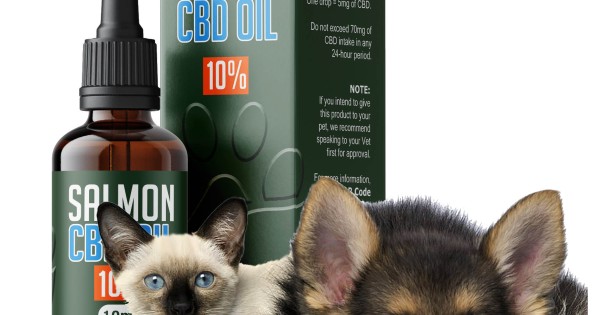In recent years, cannabidiol (CBD) has emerged as a popular alternative remedy for various health issues in both humans and pets. While many pet owners have embraced CBD for its potential benefits, questions about its safety and efficacy for pets remain. This article will explore the safety of Pet CBD, the potential benefits and risks, dosage considerations, and what pet owners should know before incorporating CBD into their furry companions’ health regimen.
Understanding CBD and Its Uses
What is CBD?
Cannabidiol (CBD) is a naturally occurring compound found in the cannabis plant, specifically in hemp. Unlike its more well-known counterpart, tetrahydrocannabinol (THC), CBD does not produce psychoactive effects. This characteristic makes CBD an appealing option for pet owners seeking natural remedies for their pets without the high associated with THC.
How Does CBD Work?
CBD interacts with the endocannabinoid system (ECS), which is present in all mammals, including pets. The ECS plays a vital role in regulating various physiological processes, such as mood, pain sensation, and immune response. When CBD is administered, it binds to cannabinoid receptors in the ECS, potentially producing therapeutic effects.
Potential Benefits of CBD for Pets
While research on CBD for pets is still in its early stages, preliminary studies and anecdotal evidence suggest that CBD may offer several benefits, including:
Anxiety Relief
Many pets experience anxiety due to various factors, including separation, noise phobia, or changes in their environment. CBD has shown promise in reducing anxiety levels, promoting a sense of calm without sedative effects.
Pain Management
CBD may help alleviate chronic pain, such as arthritis or post-surgical discomfort. Its anti-inflammatory properties can support joint health and improve mobility in aging pets.
Anti-Inflammatory Properties
Chronic inflammation can lead to various health issues in pets, including skin allergies and digestive problems. CBD’s anti-inflammatory effects may help manage these conditions.
Appetite Stimulation
Some pets experience a decrease in appetite due to illness or stress. CBD may help stimulate appetite, encouraging pets to eat and maintain their health.
Seizure Control
Preliminary studies suggest that CBD may be effective in reducing the frequency and severity of seizures in pets with epilepsy.
Is CBD Safe for Pets?
Current Research and Evidence
While CBD is generally considered safe for pets, comprehensive research on its long-term effects and safety is still limited. However, existing studies and anecdotal reports indicate that CBD can be a safe and effective option for many pets when used appropriately.
A Study on Dogs
A 2018 study published in the Journal of the American Veterinary Medical Association investigated the pharmacokinetics of CBD in dogs. The study found that dogs tolerated CBD well, and the researchers reported that the dogs exhibited no significant side effects at moderate doses.
Veterinary Opinions
Many veterinarians support the use of CBD as a complementary treatment for specific health issues. However, they emphasize the importance of consulting a veterinarian before starting any CBD regimen.
Factors Affecting Safety
While CBD is generally safe for pets, several factors can influence its safety and efficacy:
- Pet Size and Weight: Smaller pets may be more sensitive to CBD, requiring lower doses than larger pets.
- Underlying Health Conditions: Pets with pre-existing health conditions or those on certain medications should be monitored closely when using CBD.
- Quality of CBD Products: Not all CBD products are created equal. Low-quality or unregulated products may contain harmful additives or inaccurate dosing.
Potential Side Effects of CBD
Although CBD is generally well-tolerated, some pets may experience side effects, including:
Drowsiness
CBD can have a calming effect, leading to drowsiness in some pets. This effect can be beneficial for anxious pets, but it may be concerning if excessive.
Changes in Appetite
CBD may stimulate appetite in some pets, while others may experience a decrease in appetite. Monitoring your pet’s eating habits after starting CBD is essential.
Diarrhea
Some pets may experience gastrointestinal upset, including diarrhea, when introduced to CBD. If this occurs, consider adjusting the dosage or switching products.
Dry Mouth
CBD may decrease saliva production, leading to dry mouth in pets. This can be managed by ensuring your pet has access to fresh water.
Interaction with Medications
CBD can interact with certain medications, affecting how they are metabolized in the liver. If your pet is on medication, consult your veterinarian before introducing CBD.
Dosage Guidelines for CBD in Pets
Finding the Right Dosage
Determining the appropriate dosage of CBD for pets can be challenging, as individual needs can vary significantly. It’s essential to start with a low dose and gradually increase it based on your pet’s response. A common starting point is 0.1 to 0.2 mg of CBD per kilogram of your pet’s weight, administered 1 to 2 times daily.
Monitoring Your Pet’s Response
After starting CBD, observe your pet for any changes in behavior, appetite, or overall health. Adjust the dosage as needed, and consult your veterinarian if you have concerns about your pet’s response to CBD.
Consulting Your Veterinarian
Always involve your veterinarian in the decision to use CBD for your pet. They can provide personalized dosage recommendations based on your pet’s specific health needs and any underlying conditions.
Choosing the Right CBD Product
Types of CBD Products for Pets
CBD products for pets come in various forms, including:
- Oils and Tinctures: These liquid forms allow for precise dosing and can be added to food or administered directly.
- CBD Treats: Many pet owners prefer treats for convenience. Ensure that the treats contain an appropriate amount of CBD per serving.
- Capsules: CBD capsules provide a consistent dosage and can be easily given to pets.
- Topicals: CBD-infused creams or balms can be applied directly to the skin for localized relief.
Quality and Safety Considerations
When selecting a CBD product for your pet, prioritize quality and transparency. Look for products that are:
- Third-Party Tested: Independent lab testing can verify the potency and purity of CBD products.
- Made from Organic Hemp: Organic products are less likely to contain pesticides or harmful chemicals.
- Free from THC: Ensure that the product contains little to no THC, as this can be harmful to pets.
Legal Considerations
CBD Regulations
The legal status of CBD varies by country and state. In the United States, the 2018 Farm Bill legalized hemp-derived CBD containing less than 0.3% THC. However, regulations surrounding CBD products for pets can differ significantly. Always check local laws and regulations before purchasing CBD for your pet.
Veterinary Medical Boards
Some veterinary medical boards have guidelines regarding the use of Pet CBD. Consult your veterinarian to understand the regulations in your area and ensure compliance.
Conclusion
CBD presents a promising option for pet owners seeking natural solutions to enhance their pets’ health and well-being. While current research indicates that CBD is generally safe for pets, individual responses can vary based on factors such as size, weight, and underlying health conditions.
As a responsible pet owner, it’s crucial to consult your veterinarian before introducing CBD into your pet’s routine. Monitoring your pet’s response and adjusting dosages accordingly can help ensure a positive experience with CBD. By choosing high-quality products and following proper dosing guidelines, you can safely explore the potential benefits of CBD for your furry companion, promoting their health and happiness.




